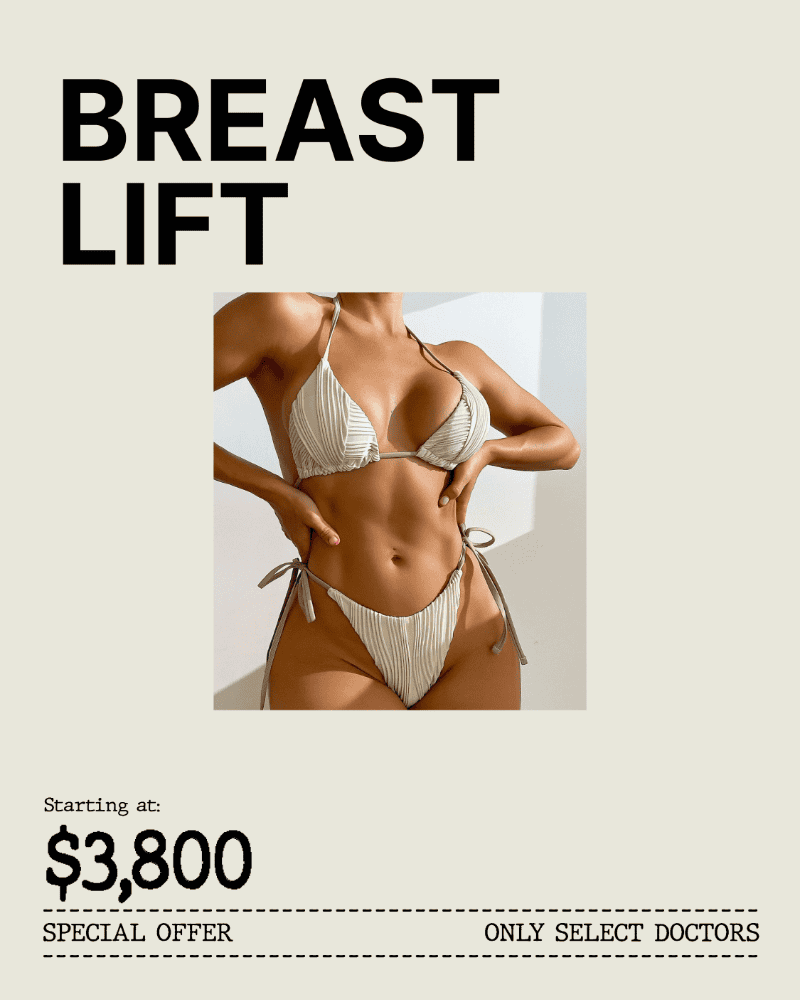During your Liposuction recovery, post-procedure itching is a normal occurrence that typically begins around week two. To reduce discomfort, we recommend using over-the-counter antihistamines like Benadryl, applying hydrocortisone cream, and keeping the skin moisturized with fragrance-free products. Wear loose-fitting, breathable clothing and guarantee compression garments fit properly. Stay well-hydrated and consume anti-inflammatory foods rich in omega-3s.
For many patients, the itching becomes more than just a nuisance — it can disrupt sleep, interfere with daily activities, and cause anxiety about whether their healing process is going smoothly. Contact your surgeon if itching persists beyond three weeks or is accompanied by unusual symptoms. Additional strategies can further enhance your healing process.
For a personalized Lipo consultation, contact Snatched Plastic Surgery today at (786) 607-8979 or fill out our online contact form to schedule your consultation today.
Why Does Itching Happen After Lipo?
While recovering from liposuction, many patients experience itching sensations that typically begin around the two-week mark post-procedure. This itchiness is actually a positive sign in your post-operative recovery, indicating that your body’s healing process is progressing normally.
During liposuction, small nerve fibers in the treated areas are disrupted. As these nerves regenerate and adapt, they create heightened sensitivity that manifests as itching. The sensation often intensifies due to several factors: skin irritation from compression garments, inflammation of tissue, and dryness of healing skin.
We recommend monitoring your symptoms carefully during this period. Mild to moderate itchiness is expected, but persistent or severe discomfort may require consultation with your surgeon to rule out potential complications and discuss appropriate treatment options for your specific situation.
When Does Itching Start After Lipo?
Most patients begin experiencing itchiness approximately two weeks after their liposuction procedure, when nerve regeneration actively commences in the treated areas. This sensation typically intensifies between weeks two and three of the recovery process, before gradually subsiding as healing progresses.
The duration of post-lipo itchiness varies based on several factors: the extent of the treated area, the specific surgical technique employed by your surgeon, and your individual skin sensitivity. While most patients experience this symptom for a few days to several weeks, it’s important to monitor your timeline carefully.
Persistent itchiness beyond the expected recovery window may indicate complications requiring medical attention. We recommend documenting your symptoms throughout the healing process, especially if you notice the itchiness lasts longer than three weeks post-procedure.
How Can You Manage Compression Garments?
Proper management of compression garments plays an essential role in minimizing post-liposuction itching and ensuring ideal comfort during recovery.
We recommend selecting garments made from breathable, moisture-wicking fabrics that reduce skin irritation while supporting the healing process. Regularly check your garment’s fit, as overly tight compression can exacerbate itchiness in treated areas.
When washing your garments, use hypoallergenic detergents to prevent additional irritation to your sensitive skin. For enhanced comfort, consider placing thin moisture-wicking layers between your skin and the compression garment to manage sweat accumulation.
If you experience persistent itchiness despite these measures, don’t hesitate to consult your surgeon. They may recommend adjusting your wearing schedule or switching to an alternative garment that better suits your recovery needs while still providing necessary compression.
How to Clean Lipo Incision Sites?
Maintaining meticulous incision and wound care represents the cornerstone of minimizing irritation after liposuction procedures. We recommend gentle cleansing of the surgical area with mild soap and water, keeping the site clean and dry without using harsh chemicals that could exacerbate sensitivity.
To promote skin hydration, apply a fragrance-free moisturizer around—but not directly on—incision sites, which helps prevent the dryness that commonly triggers itching. Change bandages or dressings according to your surgeon’s instructions, allowing the skin to breathe and heal properly.
Select loose-fitting clothing made from breathable fabrics to reduce friction against treated areas during the healing process. Despite the temptation, avoid scratching itchy regions, as this can damage delicate tissues and potentially introduce infection.
Proper wound care greatly reduces discomfort while supporting ideal tissue regeneration after your procedure.
What OTC Products Reduce Lipo Itching?
We’ll now explore readily available solutions that can help manage post-liposuction itching without requiring a prescription.
Oral antihistamines, such as Benadryl or Zyrtec, work systemically to block histamine reactions in healing tissue, often providing substantial relief from persistent itching sensations.
For localized treatment, patients may benefit from applying soothing topical products like hydrocortisone creams, colloidal oatmeal lotions, or moisturizers containing aloe vera. Though it’s crucial to consult your surgeon before using any product directly on incision sites.
Do Antihistamines Help Lipo Itching?
Several over-the-counter antihistamines can provide significant relief from post-liposuction itching by targeting the body’s inflammatory response.
Medications like Benadryl and Zyrtec work by blocking histamines released during the healing process, effectively reducing both itching and inflammation that commonly occurs after liposuction procedures.
We’ve found these oral medications particularly helpful for patients, as they typically provide relief for several hours, making them convenient for managing discomfort throughout recovery.
However, we always emphasize the importance of consulting your surgeon before taking any antihistamine. This guarantees they won’t interfere with your prescribed medications or recovery protocol.
When using antihistamines, carefully follow the recommended dosage on the packaging or as directed by your healthcare provider. This helps minimize potential side effects, such as drowsiness, which some patients experience during treatment.
Can Creams Relieve Post-Lipo Itch?
Topical treatments often provide immediate relief for post-liposuction itching when applied directly to affected areas.
We recommend hydrocortisone cream as an effective anti-inflammatory agent that reduces localized itchiness at surgical sites. For patients experiencing histamine reactions, antihistamine creams like Benadryl offer temporary comfort by blocking the body’s inflammatory response.
Moisturizers containing colloidal oatmeal are particularly beneficial for restoring hydration to irritated skin post-procedure. These formulations maintain the skin barrier and soothe recovering tissue.
For additional relief, topical analgesics with menthol create a cooling sensation that distracts from persistent itching.
Before using any of these topical remedies, consult your plastic surgeon. They’ll ensure your chosen products won’t interfere with incision healing or compromise your surgical results.
Can Diet and Water Ease Itching?
Let’s explore how proper hydration and nutrition can greatly reduce post-liposuction itching through targeted support of your healing tissues.
Drink at least eight 8-ounce glasses of water daily. This maintains dermal elasticity and helps flush out inflammatory mediators that trigger itching after fat removal.
Emphasize omega-3 rich foods like salmon and flaxseeds, plus vitamins A, C, and E, which support collagen synthesis and accelerate epidermal regeneration during recovery.
How Much Water Should You Drink?
Maintaining ideal hydration represents one of the most fundamental, yet often overlooked aspects of post-liposuction recovery.
When patients drink water consistently after their procedure, they directly support skin elasticity and minimize post-liposuction itchiness that commonly occurs during the healing phase.
Proper hydration creates favorable conditions for tissue regeneration and skin health, while dehydration can greatly worsen irritation and associated discomfort.
To supplement your water intake, incorporate hydrating foods such as cucumbers, watermelon, and celery into your diet. These natural sources provide additional moisture to healing tissues, helping your body recover more efficiently and with less itching as your skin adapts to its new contours.
What Foods Help Reduce Inflammation?
Your dietary choices, particularly those with anti-inflammatory properties, greatly influence post-liposuction recovery and can effectively reduce itching sensations.
We recommend incorporating fatty fish rich in omega-3 fatty acids into your meals to combat inflammation and support the healing process.
Antioxidant-rich fruits and vegetables, especially berries and leafy greens, promote ideal skin health and can alleviate persistent itching.
For enhanced dermal regeneration, consume collagen-supporting foods like bone broth and citrus fruits, which aid in tissue repair following surgical trauma.
Don’t overlook the importance of nuts and seeds containing vitamin E and healthy fats, as these nutrients strengthen the skin barrier and reduce irritation.
How Do You Boost Collagen After Lipo?
While healing from liposuction surgery, proper collagen production becomes essential for skin repair and itch reduction.
We recommend focusing on vitamin C-rich foods like citrus fruits, bell peppers, and strawberries, as this nutrient directly supports collagen synthesis in the dermis.
Zinc, found in oysters, meat, and legumes, works alongside vitamin C to accelerate wound healing and reduce inflammation.
Don’t overlook omega-3 fatty acids from salmon, flaxseeds, and walnuts, which combat inflammation and support cellular membrane health.
Antioxidants from colorful fruits and vegetables protect healing tissues from oxidative stress that can exacerbate itching.
Additionally, adequate protein intake provides the amino acid building blocks necessary for collagen formation. Staying well-hydrated optimizes nutrient delivery to healing tissues, making water consumption just as important as the nutrients themselves for your recovery journey.
Is My Lipo Itching a Concern?
Although mild itching is common after liposuction, certain symptoms should prompt immediate communication with your surgeon.
Contact your doctor if itchiness persists beyond a few days or worsens despite using antihistamines or cold compresses. Be vigilant for signs of infection around your incision sites, including increased redness, swelling, or unusual drainage.
If these symptoms are accompanied by fever, they may signal complications that require prompt medical attention. Severe discomfort that disrupts your daily activities or sleep shouldn’t be ignored.
How Do You Care for Skin Long-Term?
Skin health maintenance following liposuction requires consistent care well beyond the initial recovery period.
We recommend daily moisturizing with products containing hyaluronic acid or colloidal oatmeal to combat post-surgical dryness and maintain skin elasticity in treated areas. Adequate hydration is essential; drink plenty of water to support healing skin from within.
Incorporate gentle exfoliation into your routine once cleared by your surgeon, as this promotes cellular renewal without compromising recovery. Always use mild cleansers, avoiding harsh soaps and fragranced products that may irritate sensitive post-operative tissue.
Choose pH-balanced formulations that clean effectively without stripping natural oils. Finally, diligent sunscreen application is non-negotiable for long-term skin care.
UV exposure can worsen hyperpigmentation in healing skin, so apply broad-spectrum protection daily, even on cloudy days or for brief outdoor exposure.
Learn More About Liposuction Surgery in Miami
At Snatched Plastic Surgery in Miami, our board-certified surgeons specialize in advanced liposuction techniques that deliver transformative results. Our state-of-the-art facility in Miami, FL, has helped countless patients achieve their desired body contours with minimal discomfort and recovery time.
We understand your journey to confidence, and our experienced team is ready to guide you through every step of the process.
Ready to transform your body? Call us today at (786) 607-8979 to schedule your consultation, or fill out our online contact form to learn more about liposuction options at Snatched Plastic Surgery.

